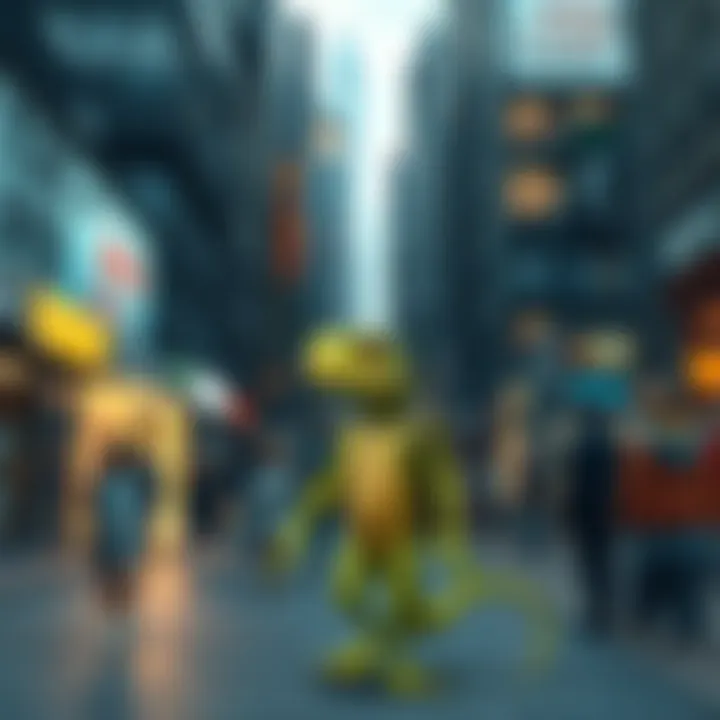Are Lizard People Among Us? | Cognitive Dissonance and Conspiracy Theories
Edited By
Adrian Cline

A fresh wave of dialogue is surfacing around the controversial claim of lizard people infiltrating society, as conversations on user boards heat up. People are questioning whether cognitive dissonance in modern life might trace back to individuals suffering cognitive impairments rather than literal reptilian beings.
What's Happening?
In recent forums, participants are pondering the implications behind the idea that our world might contain lizard brained humans. This has led to speculation that some individuals, possibly affected by frontal lobe damage, display behaviors that contribute to societal disconnect.
The Community's Reaction
Comments reflect a mix of humor and seriousness regarding the concept:
One commenter jokingly said, "I’m just here sunning myself and enjoying the tail end of mating season."
Another added, "Lizard Lives Matter. They don’t want to rule; they just want to eat bugs."
Notably, discussion is lively but divided, with some participants expressing disbelief about the original theory, while others lean into the absurdity with playful banter.
Unearthing Common Themes
Three main themes emerge from the chatter:
Cognitive Dissonance - Several comments suggest a correlation between cognitive issues and societal behaviors.
Humor and Satire - Users often respond with lighthearted takes on the seriousness of the conspiracy.
Animal Hybridization - Some feel that even if the theory were valid, they’d prefer to adhere to fantastical beliefs like animal-human hybrids rather than reptilian overlords.
Notable Insights
"Everyone has an amygdala," points one observer, suggesting that emotional responses might play a role in how we accept these conspiracy theories.
Additionally, one user expressed a layer of skepticism: "Even if that were true, I'd rather take my chances on animal people/wizards, considering human history."
Key Insights
💡 The complexity of human cognition may underlie societal tensions.
😂 Humor plays a significant role in deflecting fear regarding conspiracy theories.
🔍 Many participants prefer embracing mythical creatures over unsettling realities of conspiracy.
The exploration of these ideas not only entertains but also provokes thought about the state of our society and the narratives we choose to believe. The lizard people theory might seem far-fetched to many, yet it serves as a fascinating lens through which we view contemporary cognitive challenges.
Speculating on Future Conversations
There’s a strong chance that discussions about lizard people will intensify in the coming months. As society grapples with cognitive challenges, more people may turn to unconventional theories as outlets for their fears. Experts estimate around 40% of interactions on forums might pivot toward embracing these ideas as a coping mechanism. This can lead to a deeper divide between skeptical thinkers and those who find comfort in these narratives. The ongoing prevalence of misinformation could also fuel the trend, making bizarre theories more mainstream, as humor-infused commentary continues to draw a crowd, further blurring the line between satire and belief.
A Surprising Echo from History
Not unlike the witch hunts during the late 17th century, when paranoia and misinformation fueled a societal frenzy, today's fascination with conspiracy theories reflects a similar longing for scapegoats amid uncertainty. At that time, societal anxieties over personal and communal safety took the form of blaming individuals for invisible troubles, mirroring how modern fears of lizard people serve as a lens to discuss broader cognitive and societal issues. Just like the witches were seen as agents of chaos, today, lizard people represent the confusion in our rapidly changing world, serving both as distractions and as reflections of deeper societal concerns.
